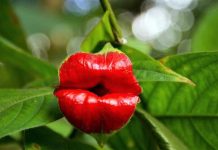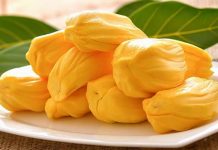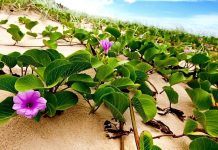Scientific name: Phyllanthus emblica L.
Family: Euphorbiaceae
Synonym: Emblica officinalis Gaertn.
Bengali/Vernacular name: Amloki, Amla (Bengali); Omoloi (Noakhali); Aila (Sylhet).
Tribal name: Ambari phang (Garo); Amloti, Hadamola (Chakma); Soi sha (Marma); Sowan lu (Bawm); Khulu, Ui-sha (Murang); Choalu (Pangkhoa); Kalamabagula (Tanchangya); Salaci (Chak).
English name: Emblic myrobalan, Indian gooseberry.
Description of the plant: A small to medium-sized, deciduous tree. Banchlets feathery with distichous leaves, resembling a pinnate leaf; leaves small, blade oblong or linear-oblong, obtuse, shallowly cordate at the base, margin thickened and inrolled. Flowers in axillary cymes, many male flowers and a single female flower per cyme, small, greenish yellow. Fruit a globose drupe, about 2.5 cm across, obscurely 6-lobed, smooth, succulent, greenish or yellow-white. Seeds trigonous.

Plant parts used: Fruit.
Medicinal uses: Fruit infusion is taken for the treatment of anorexia, dyspepsia, flatulence, hypertension and nervous debility.
Two drops of fruits juice of the plant is given into the infected eyes every day to treat ophthalmia.
Juice extracted from fruits of the plant is taken for the treatment of beriberi, fever, leucorrhoea.
Pills made from fruits of the plant with little amount of honey are taken to treat diabetes, hyperacidity.
Distribution: Occurs in the forests of Chittagong, Chittagong Hill Tracts, Cox’s Bazar, Sylhet, Dhaka-Tangail (Sal forest) and Dinajpur; also cultivated elsewhere.
Is this plant misidentified? If yes, please tell us….















… [Trackback]
[…] Info on that Topic: natureinfo.com.bd/phyllanthus-emblica/ […]
… [Trackback]
[…] Find More to that Topic: natureinfo.com.bd/phyllanthus-emblica/ […]